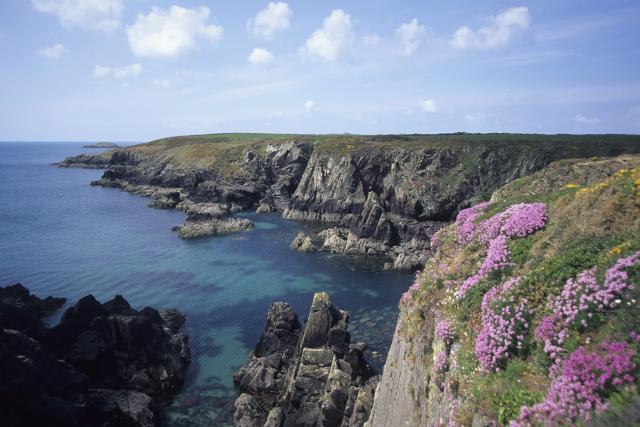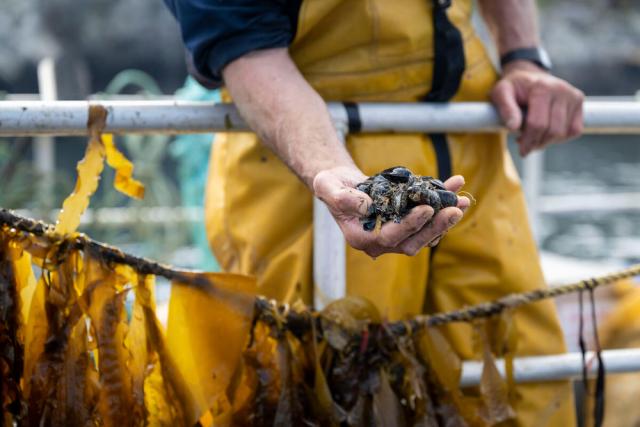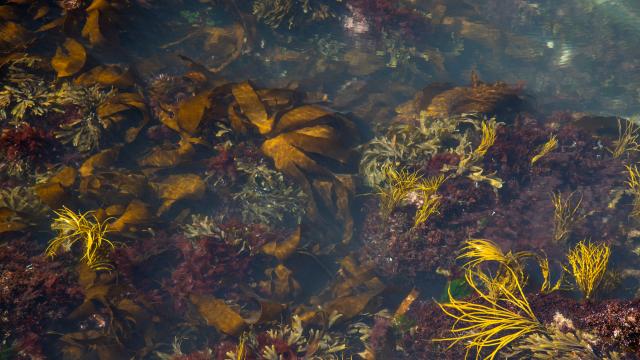
The history, benefits, and future of seaweed in Wales.
Did you know that the 14th of April is now National Laverbread Day? We are celebrating at WWF Cymru by looking at the fantastic history, benefits, and future of seaweed in Wales.
Wales is a coastal country, with many of its exports and resources coming from the sea, and though it is not as commonly found today, seaweed was once a staple in Welsh cuisine. Laverbread, made from laver seaweed, is a Welsh delicacy that can be served warm or cold, and is packed full of nutrients. It was favoured for many years for being an accessible source of iron and iodine, perfect for the hardworking locals!
Underwater forests
As well as its many health benefits, seaweed also has the potential to help us tackle our climate and nature crisis in Wales.
Underwater seaweed forests can help preserve and increase biodiversity by providing homes and food for marine life, including juvenile fish, soft corals, limpets, urchins and crustaceans.
Seaweed also helps to absorb carbon, filter pollution, and lower the water’s acidity, which helps molluscs grow more quickly. Kelp forests even act as buffers that protect coastal landscapes from erosion and flooding.
Sustainable seaweed farming is very achievable and supports delivering a food system that feeds people, reverses nature loss, and tackles climate change.

Regenerative Ocean farming
WWF have been working with Câr-y-Môr, a community-owned seaweed and shellfish farm in Pembrokeshire.
At Câr y Môr, seaweed is grown with oysters and rope grown mussels, to create a mixed farming system. The farm does not use fertiliser, pesticides, or freshwater, and the resulting seaweed is used to create a range of products, from beer to biodegradable plant pots.
We're working with the Regenerative Ocean farm, based off the St David’s peninsula, to monitor the impact the farm is having on the marine environment and biodiversity as well as investigating innovative uses for seaweed such as adding it to animal feed to reduce methane from cows.
Seaweed is an incredible resource that is native to our coast and has a long history of cultural significance. A sustainable food source that benefits people and the environment is crucial to building a more sustainable future for Wales, and seaweed is a fantastic step in the right direction.
Want to find out more about this incredible plant? Head to Câr-y-Môr’s website to learn more about their work, or check out National Laverbread Day’s website here
